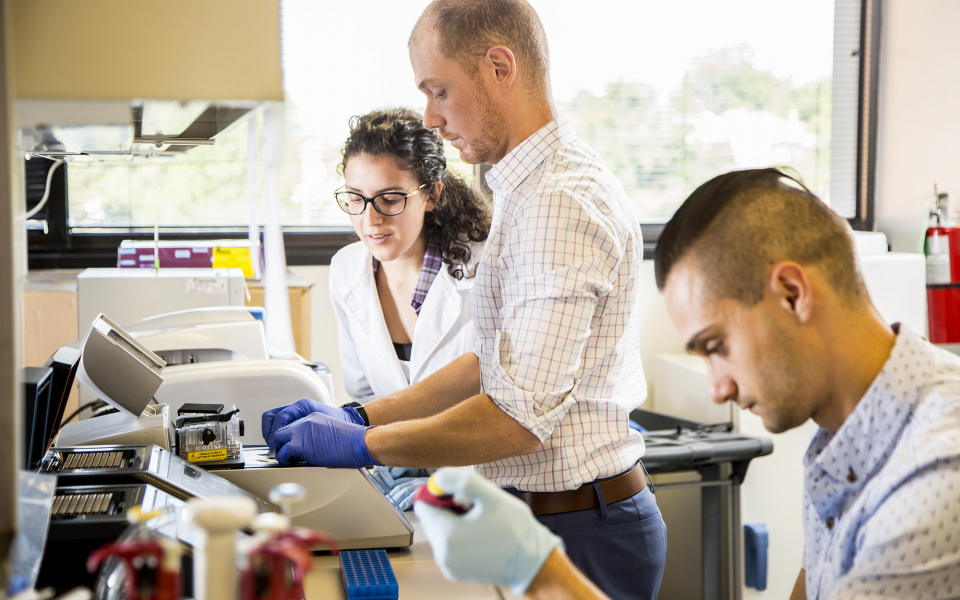PROGRAM GOALS
- Identify and fund highly innovative ORDRCC Pilot Grants from junior ORDRCC investigators or established investigators with novel ideas in a new field of investigation
- Provide career and scientific mentoring to Pilot Project investigators and applicants
- Evaluate progress of projects and effectiveness of mentors and ensure that this program continues to provide key resources for outstanding scientific opportunities
ELIGIBLE APPLICANTS
- Junior investigators who have independent research groups and no previous NIH R01
- Established investigators with a completely new direction for their research group
HOW TO APPLY
A call for proposals is released every August.
Application requirements
A 3-page NIH-styled proposal for sections 1 and 2 (using NIH grant application forms):
- Specific Aims
- Research Strategy with Significance, Preliminary Data (if available), Innovation, and Approach
- References (does not count against page limits)
- NIH-style one year budget and justification
- NIH biosketch and other support
- IRB approval or pending application
Application review
The Internal Advisory Committee coordinates scientific review of applications based on:
- Scientific merit
- Degree of innovation
- Potential to affect the field
- Probability of success for future funding and scientific success
- Quality of the proposal
- Current funding status of the applicant
Evaluation
Six months into the award cycle, each funded investigator will provide a 1-2 page progress report to the respective mentoring committee. Pilot Investigators meet with the External Advisory Committee to discuss the project and career directions, and submit a final report on the project’s outcomes.
In addition, current and previous investigators submit annual impact information regarding publications, future support, career development, etc. These outcomes are crucial for the continued funding of this program.
PREVIOUS PILOT AWARD RECIPIENTS
- Joel M. Guthridge, PhD: “Gene and functional analysis of LYN alleles associated with lupus”
- Andrea L. Sestak, MD, PhD: “Investigation of candidate genes in SLE”
- Courtney Montgomery, PhD: “Genetics of early lupus autoimmunity in African-Americans”
- Sherry R. Crowe, PhD: “Influenza infection and autoimmunity”
- Amr Sawalha, MD: “Genetic Association Studies in Behçet’s disease”
- J. Shannon Maier-Moore, PhD: “Pathogenic monoclonal antibodies in Sjögren’s syndrome”
- Melissa E. Munroe, MD, PhD: “Ascertaining molecular signatures of Active SLE”
- Kenneth Smith, PhD: “Characterization of anti-phospholipid antibodies from patients with anti-phospholipid syndrome”
- Eliza F. Chakravarty, MD: “Vaccination in rheumatoid arthritis”
- Tim Griffin, PhD: “Cartilage Lipid Metabolism in Obesity and Osteoarthritis”
- Mikhail Dozmorov, PhD: “H3K4me ½ histone methylation marks differences in Systemic Lupus Erythematosus”
- Christopher Lessard, PhD: “Genomic Regulation of Chromosome 16q24.1 near IRF8 in Systemic Lupus Erythematosus”

Leave a Reply
You must be logged in to post a comment.